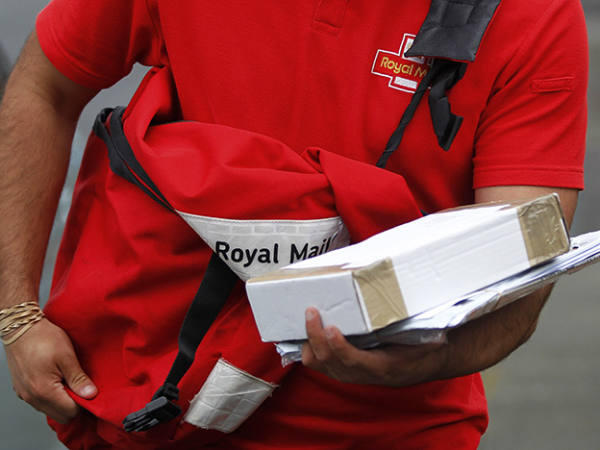Banks are a no go for many investors but IC Top 100 Fund Jupiter Strategic Bond (GB00B2RBBC80) is profiting from them. Its manager Ariel Bezalel believes that in the aftermath of the 2008 financial crisis the ongoing process of bank recapitalisation presents a compelling opportunity.
He decided to invest in the area in the third quarter of 2012 and developed positions in the deeply subordinated bonds issued by banks in the UK and Germany.
"With central bank policy becoming more progressive in Europe (Mario Draghi would soon make his do whatever it takes pledge) and the US (Quantitative Easing 3 was on its way), we were attracted to the sort of value on offer for an industry in the midst of a recapitalisation process that could present a multi-year investment opportunity for bond holders," he explains. "Treading cautiously, we invested in the tier 1 and lower tier 2 paper of industry heavyweights, such as Lloyds (LLOY), Barclays (BARC), Royal Bank of Scotland (RBS) and Commerzbank. Ultimately, we believed banks would start to exhibit utility-like characteristics."
Bonds issued by Lloyds and its subsidiaries account for around 7 per cent of the fund's assets.
"Lloyds is the largest holding from the sector and is emblematic of the changes occurring across the sector," says Mr Bezalel. "The bank, which is the largest mortgage and retail savings provider in the UK, is not only a play on the UK economic recovery, but is making solid progress on its strategic plans. Non-core assets are being reduced. Profitability is up. It has a leverage ratio comfortably above current regulatory requirements. In addition to the bank's longer term deleveraging plans, we are attracted to its general focus on conventional banking rather than investment banking."
The fund has also taken tactical positions on older style tier 2 bonds. This is because part of the bank deleveraging story involves changes to the sort of capital banks hold on their balance sheets, and these and other subordinated paper may no longer be fit for purpose when banks are subject to stress tests. For these reasons Mr Bezalel expects that they might be tendered at a premium to current market rates.
"In early March, Lloyds announced just such a move when it made a tender offer for roughly £8bn worth of its outstanding enhanced capital notes," he says. "These contingent convertible bonds (CoCos) were issued in 2009 when the bank needed to raise capital to meet Financial Services Authority stress tests, but have since been deemed insufficient under new definitions about what constitutes core capital.
When investing in bonds, the devil is in the detail, and this rather technical change has created quite an interesting investment opportunity. As part of its tender offer, Lloyds is giving bondholders the option to exchange into £5bn of new Additional Tier 1 securities at favourable prices. This has benefited Jupiter Strategic Bond Fund, which at the time of the offer had around 3 per cent in these notes."
The fund has around 24 per cent of its assets in bank bonds. "We are still very comfortable with our position in this area of the market," says Mr Bezalel. "We have taken some profit recently on some of the additional Tier 1 bonds and Cocos that have been issued by banks in the last 12 months. They have delivered excellent returns for us but are highly sensitive to market movements and as we think the second half of the year is more likely to be volatile, are slightly re-positioning our portfolio to adopt a more defensive position."
But the process of healing after the financial crisis continues to offer selective special situations for bond investors. Bonds in RBS struggled in the third quarter of 2013 amid concern the bank would be broken up.
"We believed such a move was unlikely given the potential cost and complexity," says Mr Bezalel. "Nevertheless, market speculation about the bank's future led to a period of underperformance for our material holding in the bank's bonds until November, when it was announced that a £38bn internal bad bank would be created. This news provided a significant boost for the bonds."
About 3.6 per cent of the portfolio was invested in RBS bonds when the bank announced it would be creating an internal bad bank to manage its riskiest assets.
Areas the fund is avoiding include generic European high yield bonds which Mr Bezalel describes as "a little pricey," and he is instead focusing more on special situations.
"These can include owning bonds where we think there is a high probability the issuer will redeem them in the next year or so rather than run them to final maturity," he says. "When a company chooses this route, it is often a sign that it may be preparing to launch an initial public offering (IPO) or it is perhaps in discussions to be taken over or bought out – House of Fraser would be a good example.
Other special situations that we have become recently involved in include Air Berlin. It's what we call a distressed trade as the company is struggling. With significant cash, assets on the balance sheet that could be sold and a supportive shareholder in Etihad Airlines, the short dated bonds on a double digit yield should perform in line with expectations.
Meanwhile CEDC, the Russian-owned vodka producer is a compelling turnaround story.
And oil rig financing bonds offer yields in excess of 7 per cent and are typically secured against a physical asset – the rig – a characteristic we believe offers greater peace of mind."
JUPITER STRATEGIC BOND FUND (GB00B2RBBC80) | |||
| PRICE | 66.46p | MEAN RETURN | 8.07% |
| IMA SECTOR | Sterling Strategic Bond | SHARPE RATIO | 1.8 |
| FUND TYPE | Unit trust | STANDARD DEVIATION | 4.02% |
| FUND SIZE | £1.87bn | ONGOING CHARGE | 1.49%* |
| No OF HOLDINGS | 303* | YIELD | 5.10% |
| SET UP DATE | 02-Jun-08 | MINIMUM INVESTMENT | £500 |
| MANAGER START DATE | 02-Jun-08 | MORE DETAILS | www.jupiteronline.com |
Source: Morningstar, * Jupiter.
| 1 year cumulative total return (%) | 3 year cumulative total return (%) | 5 year cumulative total return (%) | |
| Jupiter Strategic Bond Inc | 6.9 | 26.3 | 106.8 |
| IMA £ Strategic Bond sector average | 3.3 | 20.6 | 72.6 |
| IBOXX GBP NonGilts TR | 1.6 | 24.2 | 59.6 |
Source: Morningstar as at 4 April 2014
Top ten holdings as at 28 February 2014
| Australia Government 4.75% 21/04/27 | 3.9 |
| Australia Government 5.5% 21/04/23 | 2.6 |
| Australia Government 5.75% 15/07/22 | 1.8 |
| Eksportfinans 5.5% 26/06/17 | 1.7 |
| LBG Capital 11.04% 19/03/20 | 1.5 |
| Unique Pub Finance 6.542% 30/03/21 | 1.1 |
| Punch Taverns 7.274% 15/04/22 | 1.1 |
| Lowell Group 10.75% 01/04/19 | 1.1 |
| TUI Travel 6% CV 05/10/14 | 1.1 |
| Spirit 5.472% 28/12/28 | 1.1 |
Top ten sector gross exposure
| Financials | 39.2 |
| Consumer Discretionary | 10.4 |
| Industrials | 9.2 |
| Rig financing | 6.3 |
| Cash | 5.5 |
| Telecoms | 4.8 |
| Media | 3.8 |
| Healthcare | 3.1 |
| Business services | 2.7 |
| Consumer non discretionary | 1.80 |









